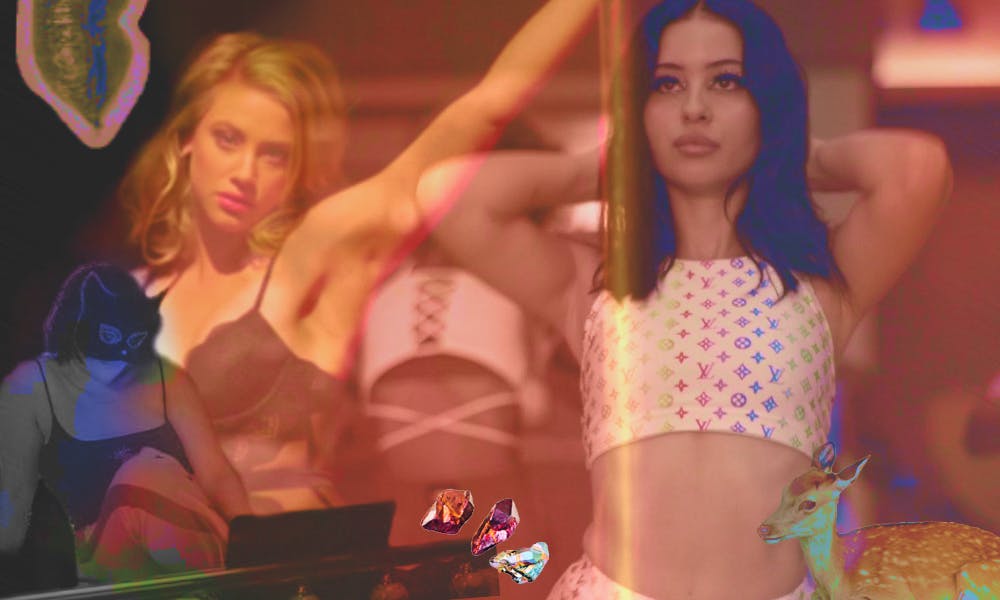Millions of teenagers fawn over their sexy TV counterparts. The teens featured in popular series like Riverdale, Pretty Little Liars, and more are sultry, mysterious, alluring—the perfect bait for a hormonal teen audience. However, there’s a strange dissonance bubbling under the surface—they’re not actually teenagers. Oftentimes, the actors in these series are played by adults in their mid–twenties. With older casts, teens on television are oversexualized, leading to many teens initiating sexual activitiy earlier in their lives.
The phenomenon of adults playing teens is largely due to one reason: child labor laws. There are strict laws regulating how long child actors can stay on set, and if a show needs to film for ten to 12 hours, having a minor on set slows down the shooting schedule.
The easy fix is to employ adult actors that look reasonably young enough to play children. If the actor is attractive, the bar for suspension of disbelief is raised. For instance, in Euphoria, Jacob Elordi plays Nate Jacobs, a senior in high school, but he could easily pass for a senior in college. The deciding factor is that Elordi is a 6–foot–5, muscular, conventionally attractive white male who instantly gained heartthrob status the moment his career took off after appearing in The Kissing Booth.
While adults playing teens is the obvious solution to the issue of labor laws, this solution has created a host of other problems. Adult actors can generally engage in sexual behaviors on screen, regardless of if the character they’re playing is a minor, leading to blatant oversexualization of teens.
Riverdale is a series based on Archie Comics about friends unraveling the dark mysteries of a small town. In Season 1 Episode 1, Betty, played by Lili Reinhart, and Veronica, played by Camila Mendes, try out for the cheerleading squad by performing a sexual dance routine and staging an impromptu steamy kiss to prove their fierceness. In reality, these events are completely inappropriate. Cheerleading is a physically intensive sport that promotes teamwork and athletic excellence, and to reduce it to a sexy teen pastime is completely false.
Additionally, no high school would allow their cheerleading team to force interested students to dance provocatively to make the team. The tryout functions as a barely concealed striptease—and it gets worse.
Betty’s boyfriend Jughead, played by Cole Sprouse, is in a gang called the Southside Serpents, and she wants to join. The issue of gang violence itself is trivialized. But, Betty wants to join. The high schooler's initiation is a striptease and pole dance performed in front of the gang members. Under no circumstances should anyone be comfortable with a minor sexually exploiting themselves to enter a gang. Yet, this act by Betty is glamorized as daring, adventurous, and even female empowerment—it’s pure absurdity.
In Pretty Little Liars, a series about friends investigating the disappearance of their best friend and attempting to hide their dark secrets, high school sophomore Aria Montgomery, played by Lucy Hale, enters a relationship with her English teacher Ezra Fitz, played by Ian Harding. Hale is too polished and mature to look like a high school sophomore. The relationship is purely two attractive people acting in love for the pleasure of fans.
And yet, the popularity of the relationship is deeply concerning. It doesn’t matter how old someone looks. There is no context where someone defined as a high school student should engage in a sexual relationship with their teacher. The nature of the student and teacher relationship is exploitative and rife with grooming and mental manipulation.
The overly sexual nature of teen characters negatively skews teenagers' perceptions of themselves. When an impressionable teen or preteen sees these characters, they may believe that they should have a more active sex life because that's how popular TV teenagers act. Another issue is that actual teens may believe that their teenage experience is wrong and somehow worse than other teens’.
But every teen questioning their experience because of a TV series needs to know one thing: It’s supposed to be awkward. Teenagers are in the throes of puberty—to be a teenager means to endure acne, uncertainty, sweatiness, fashion fails, and general trial and error. The glossy glamour of TV teens isn’t simply an oversimplification of teenagehood—it’s fake.
Despite this, some argue that showing sexually active teens is actually giving modern teens more representation. This point is unequivocally false. For example, teens today are having less sex than in the past. In 2007, the CDC reported that around 52 percent of high school students had never had sex. In 2019, the CDC reported that 62 percent of teens had never had sex.
Even if one wanted to modernize representations of teen sexual behavior, overly graphic and at times voyeuristic scenes are poor methods of doing so.
The series Sex Education is one of the rare shows that accurately depicts the teenage experience. While the cast still features adults playing teenagers, the characters aren’t placed into absurd, unrealistic, and oversexualized situations.
When watching Sex Education, one notices an almost constant air of sweet awkwardness. The characters explore themselves intellectually, physically, and sexually, and make mistakes in the process. Some moments are cringe–inducing—and that’s good. Viewers cringe because it’s realistic. The authentic, honest, and heartfelt nature of the series is revealed through pervasive secondhand embarrassment. Any modern teen could enter the world of Sex Education and feel at home.
However, if the lucrative business model of attractive young people in explicit scenarios is too good to ignore, there’s a perfect solution: college. Simply age characters up a few years and let the debauchery commence. While it’s still disconcerting to sexualize young adults, it’s comparatively better than sexualizing minors.
And unlike high school students, many adult college students are having sex, doing drugs, and a host of other mature behaviors. Any Penn student can attest that a college campus is the perfect setting to tell stories about the outlandish, often reckless behaviors of youth and the odd shenanigans that ensue.







